“Dream a Little Dream of Me” was always one of those songs whose genesis left me puzzled: there are three names listed as authors, two of which nobody has ever heard of - Fabian Andre and Wilbur Schwandt. They are credited in apparent collaboration with one of the great songwriters of all time, Gus Kahn - a lyricist so famous that he was the subject of that greatest of all honors for a songwriter, namely, a Hollywood biopic. This was the 1951 Warner Bros. film I'll See You in my Dreams, which costarred Danny Thomas and Doris Day as Mr. and Mrs. Gus and Grace Kahn.
But who exactly were Fabian Andre and Wilbur Schwandt? Years ago, I brainstormed with Michael Feinstein and we came up with the theory that possibly they were European songwriters.
It was a buddy of mine, the esteemed collector and occasional band vocalist John Leifert (you can hear him all over the soundtrack of the Ken Burns documentary Baseball) , who solved the mystery, when he unearthed two obscure recordings by an obscure band on an obscure record label. It turns out Andre and Schwandt were playing piano and guitar in a dance band that was based in Grafton, Wisconsin led by one Glen Lietzke. I’m not sure what any of these musicians played - both Andre and Schwandt were apparently arrangers and probably also pianists; Lietzke apparently directed the band and also sang. (Incidentally, no two sources apparently agree on the spelling of that name: I have seen it as “Lietzke,” “Leitzke,” “Leitskes,” and even “Glen Lyte.”)
Lietzke’s Midnight Serenaders, as the band was billed, recorded for an independent label called Broadway Records, which, despite the name, was based in Grafton - possibly Grafton also has a Broadway? And in August 1930—the discographies aren’t clear—they cut an original song by Andre and Schwandt titled “Stars.” With Lietzke singing, the original lyric goes as follows:
Stars shining through the evening,
Stars smiling down from Heaven above.
Why must I keep on looking for you,
Searching for my star of love?
Dreams vanished when you left me,
Dreams that I thought would surely come through, dear.
Why must I search the Heavens above,
Searching for my star of love?
Stars breaking find my poor heart aching,
Just thinking of you,
You were my own joy in the making,
Cause I’d be blue.
Stars find me where I started,
Searching and waiting, so broken-hearted.
Still gazing at the full night above,
Searching for my star of love.
At some point, the song attracted the attention of Gus Kahn, already one of the most successful songwriters ever. Kahn was, if not exactly unique, then certainly special, in that he was one of the most important ASCAP members not based in New York for most of his career - even though he had already written several Broadway shows. It makes sense that the song “Stars,” recorded by a Wisconsin dance band, would have crossed his transom rather than, say, that of Walter Donaldson, or the majority of writers who were, by 1930, professionally based in the Times Square area, many of whom were already heading to Hollywood, as Kahn, in fact, soon did.
"Johnny Mercer, who was one of the really other great lyric writers, used to call my father the tune hog,” said Donald Kahn, son of Gus and an accomplished songwriter himself (“A Beautiful Friendship” is probably his best known tune). Speaking in a 2000 interview with NPR, the younger Kahn continued, "my dad wrote with everybody and 'Dream a Little Dream' is a sterling example of it. My dad would get tunes from people and my mother would play the tunes for him and he would sit and grumble mostly.”
Kahn took “Stars” and outfitted it with both a new lyric and a new title. In December of 1930, Lietzke’s Midnight Serenaders returned to the studio for Broadway Records and cut a new version of the song, incorporating Kahn’s changes.
“Dream a Little Dream of Me,” as everyone knows, goes like this:
Stars shining bright above you
Night breezes seem to whisper, "I love you"
Birds singing in the sycamore tree
Dream a little dream of me.
Say, "Nighty-night" and kiss me
Just hold me tight and tell me you'll miss me.
While I'm alone and blue as can be,
Dream a little dream of me.
Stars fading but I linger on, dear
Still craving your kiss
I'm longing to linger 'til dawn, dear
Just saying this
Sweet dreams 'til sunbeams find you,
Sweet dreams that leave all worries behind you.
But in your dreams, whatever they be,
Dream a little dream of me
The two Lietzke versions are melodically identical; only the lyric is different. The song is published in G major, and in the bridge it modulates to the flat VI, which is E-flat major.
Most everything you read about “Dream a Little Dream” states that the song was first recorded in 1931 by Ozzie Nelson. Nelson’s was probably the first recording by a famous, nationally-known big band - but, as we have seen, it was not the absolute first. Still, it is worth hearing as is practically everything by Ozzie Nelson and his Orchestra, in my opinion an under-appreciated band amongst contemporary listeners and historians.
The song was recorded by a number of bands in 1931, but the only major recording that people are likely to listen to 90 years later is by the Dorsey Brothers and their Orchestra. Honestly, it’s not one of their more scintillating sides, although there are nice melody solos by Jimmy (clarinet) and Tommy (trombone, on the bridge) and a vocal by Scrappy Lambert. Another version that attracted attention was that by the “sweet band” of Wayne King, not yet branded as “the waltz king” - in fact, it’s Wayne King who gets his picture on the original sheet music.
Wayne King (Ernie Burchill, vocal)
(Wiki states that Kate Smith recorded “Dream a Little of Dream Of Me” early on, but I can’t find any trace of that recording, or, in fact, any early version other than by a dance band. When the song became popular again 20 years later, Kate Smith sang it on her TV show and informs us that she had sung it on the radio, but doesn’t mention a recording.)
Like a great many future standards, “Dream a Little Dream” was more or less forgotten after 1931, until it was rediscovered after the war. The first major artist to bring it back was Nat King Cole with the King Cole Trio; Cole treated it to a great vocal (reprised at the end) and a piano solo, as well as a guitar solo by Irving Ashby, who had only recently replaced Oscar Moore.
The song started to catch on when Frankie Laine had a chart hit with it in 1950. However, his 1959 recording, from the album with Michel Legrand, is the one worth listening to in that it’s virtually the only one I can think of to include the song’s verse:
Actually, the song has two verses, and Laine sings the first. I have yet to hear anyone sing both (although both are in the 1931 sheet music):
First Verse:
We meet at evening time,
‘Tis sweet at evening time,
To know I’ll spend an hour or two
Just with you.
Then when the hour grows late;
I love to hesitate -
The moments seem so fleeting,
While I am here repeating.
Second verse:
I stand and say “Good - night,”
It’s grand to say “Good - night,”
Then stay and say it o’er and o’er,
By your door.
The milkman hurries by,
But sweetheart here am I -
Again I fondly hold you,
repeating all I’ve told you.
Gus Kahn died relatively young - 54 years old - in Hollywood in 1941, at the very top of his career; some of his final songs, especially “You Stepped Out of a Dream” are among his very best. But around the time that the “Dream a Little Dream of Me” was revived, the other two co-authors reappeared, but in very different forms. Fabian Andre spent the latter part of his life in Mexico City and was even younger than Kahn - only 50 - when he died in 1960 . It was in Mexico City, where, in 1950, Andre met a six-year-old future singer and rock star named Holly Michelle Gilliam, who would eventually become Michelle Phillips of the Mamas and the Papas.
As Ms. Phillips told NPR, "He was just a fabulous rake, we liked him a lot. He was a big drinker, however. He loved to play the piano. He was--I have this image of Fabian at the piano all the time. I don't have any other image of him, as a matter of fact. Just singing and playing and drinking at the piano.”
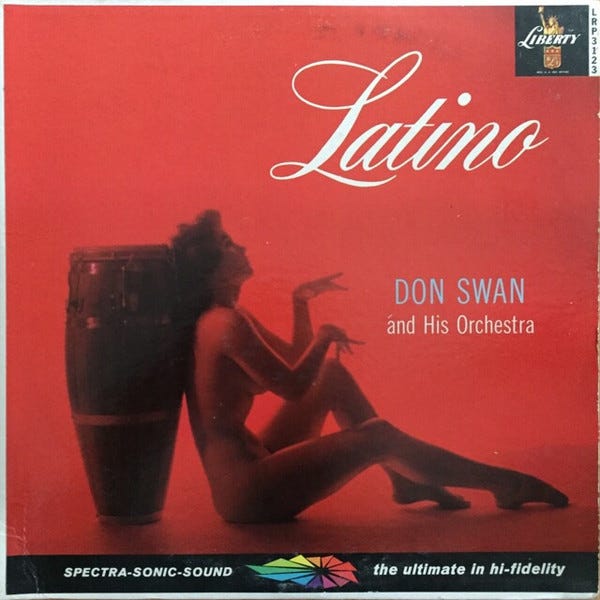
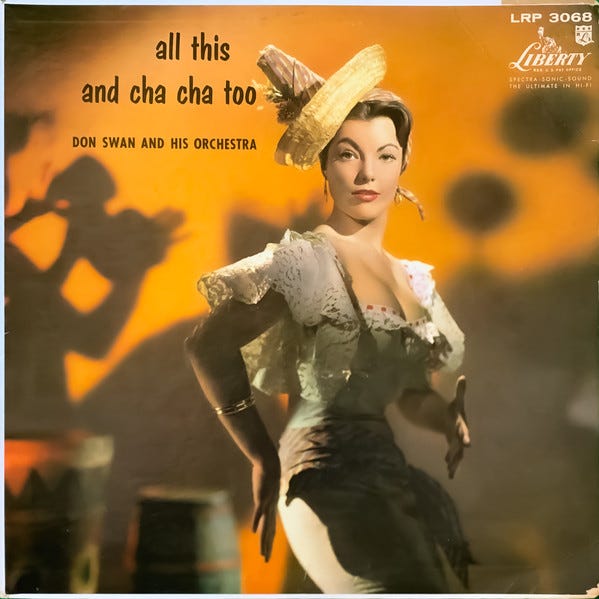
Both Schwandt and Andre participated in the Latin music craze of the 1950s, Schwandt very successfully, recording a series of mambo albums for Liberty Records (under the stage name of “Don Swan”) in the latter part of the decade. (Liberty Records, home of Julie London, specialized in gratuitous pictures of attractive models on their covers - this was, after all, the home of Julie London.) Schwandt / Swan was the only one of the three collaborators who lived out a full life expectancy, making it to age 94, and dying in Miami in 1998.
According to wiki (I can’t find an actual obit), Andre died of alcohol-related complications in his hotel room in Mexico City in 1960. But in 1968 - after Andre had supposedly been dead for eight years - someone mistakenly informed Michelle Phillips that Andre had just died when he - apparently under the influence - stumbled into an open elevator shaft.
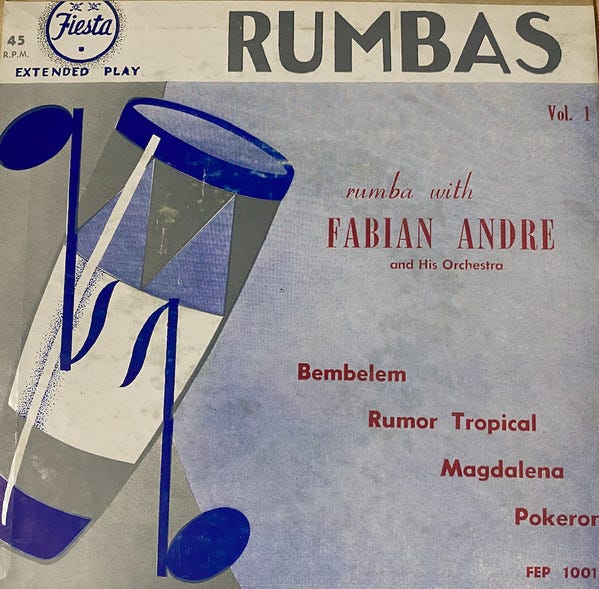
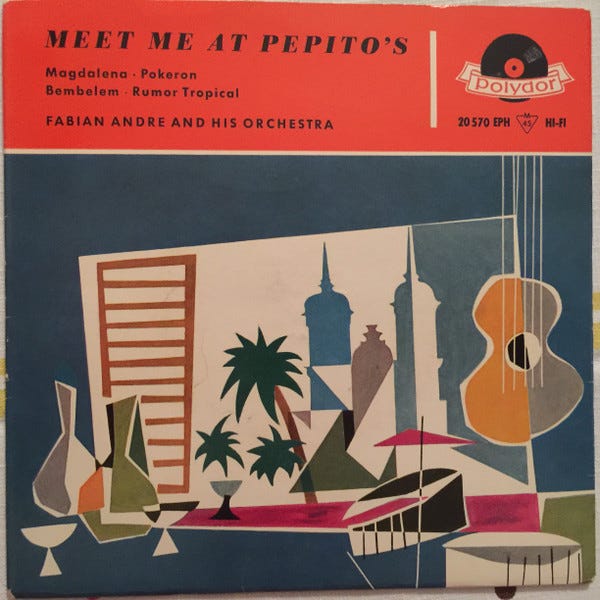
"It was very shocking, you know," Ms. Phillips continued to NPR, "I said, can you imagine this guy who wrote this fabulous song? And John (Phillips) had remembered, at that point, that I had told him about Fabian and the song. We had never thought about it again until we were all sitting around that day discussing his death, when we started to pick out the song and--to see if we could remember the lyrics to it. And we said, `Cass, come here. Sing this.' "
The single of Cass Elliott singing “Dream a Little Dream of Me” would, according to some statistics, eventually sell seven million copies, and become Elliott’s signature number. Somewhere along the line, however, someone made a significant change in the song. As saxophonist and bandleader Dan Levinson observes, “Mama Cass sings it in C major, but she goes to A major on the bridge instead of A-flat major. Ab is the key to which she would modulate if she were singing what was written. I don't know why she did that, but I do know that when musicians perform this song with a vocalist we're unfamiliar with, we have to be cognizant of that discrepancy and prepared to modulate to the key of natural VI if the vocalist learned the song from the version by The Mamas and Papas and goes to that key.”
I won’t link to the Cass Elliott single - I can’t imagine that there’s anyone reading this who doesn’t know it ! - but here’s a nice video of her performing the song live on English TV - in a duet with the BritPop singer Lulu
I saved the best for last. Without question, my favorite version is by the team of Ella Fitzgerald and Louis Armstrong. Alas, there’s no actual video of them together, performing this or any other song, but there is this charming cartoon produced by a famous Danish animator, Jannik Hastrup:
Very Special thanks to the fabulous Ms. Elizabeth Zimmer, for expert proofreading of this page, and scanning for typos, mistakes, and other assorted boo-boos!
Sing! Sing! Sing! : My tagline is, “Celebrating the great jazz - and jazz-adjacent - singers, as well as the composers, lyricists, arrangers, soloists, and sidemen, who help to make them great.”
A production of KSDS heard Saturdays at 10:00 AM Pacific; 1:00PM Eastern.
To listen to KSDS via the internet (current and recent shows are available for streaming.) click here.
The whole series is also listenable on Podbean.com, click here.
SING! SING! SING!
June 29 - Americana - For the Fourth of July - Songs of Civil Rights & The African American Experience
July 6 - The Four Freshmen & Other Great Jazz Vocal Groups of the 1950s
July 13 - Bastille Day: Guest Co-Host ERIC COMSTOCK shares his favorite French songs! Formidable!
July 20 - The Margaret Whiting Centennial: “Happy Birthday Maggie!”
July 27 - “Calypso Blues” OR “It’s The New Calypso Bebop!”
August 3 - Tony Bennett At 98
SLOUCHING TOWARDS BIRDLAND is a subStack newsletter by Will Friedwald. The best way to support my work is with a paid subscription, for which I am asking either $5 a month or $50 per year. Thank you for considering. (Thanks as always to Beth Naji & Arlen Schumer for special graphics.) Word up, peace out, go forth and sin no more! (And always remember: “A man is born, but he’s no good no how, without a song.”)
Note to friends: a lot of you respond to my SubStack posts here directly to me via eMail. It’s actually a lot more beneficial to me if you go to the SubStack web page and put your responses down as a “comment.” This helps me “drive traffic” and all that other social media stuff. If you look a tiny bit down from this text, you will see three buttons, one of which is “comment.” Just hit that one, hey. Thanks!





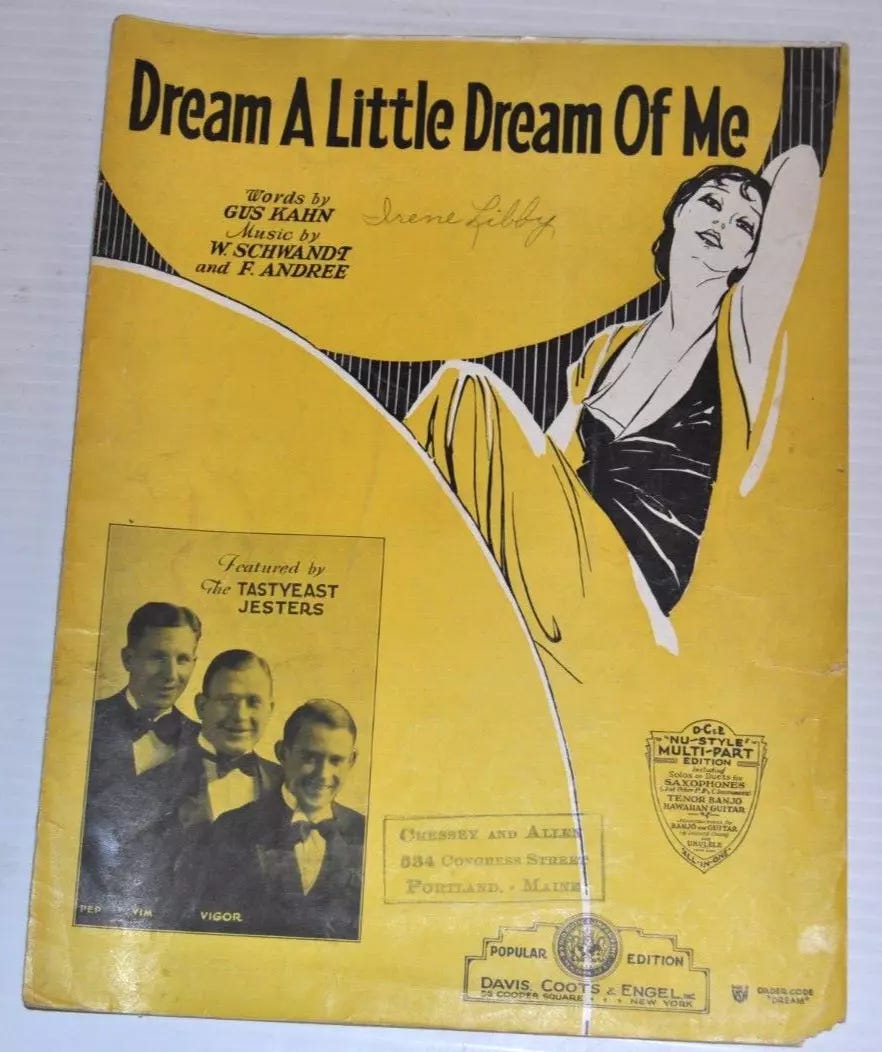
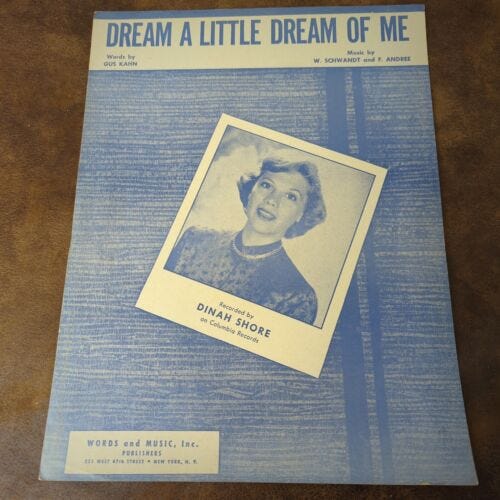
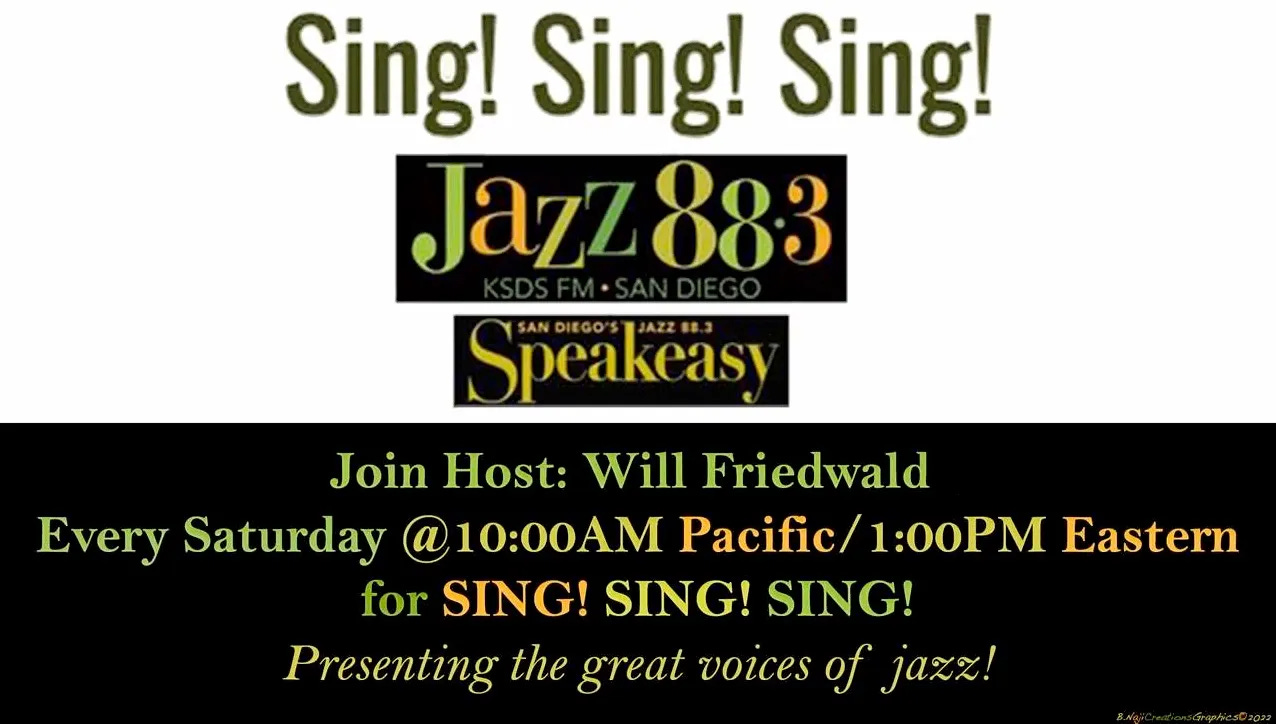
Is out possible that Cass' musicians couldn't play in Ab, so they went to A, being an easier and better guitar/rock key?
I hope this information will help add to the research. I remembered reading an obituary of a female vocalist who first sang “Dream a Little Dream”, in my local paper in Vero Beach, Florida, some years ago. I have just spent an hour trying to find it again and I did — the vocalist was Adele Haehlen Lowe and here is the relevant text from the obituary:
“Adele Haehlen Lowe, born February 2, 1916 in West Allis, Wisconsin, died September 5, 2007 in Overland Park, Kansas…. In the 1930's, Adele was the featured vocalist with the Billy Baer Band and was heard regularly on radio broadcasts in Milwaukee. The band performed at venues in and around that area and also at the Aragon Ballroom in Chicago and Bear Mountain Resort in New York. A member of the band, Don Swan, wrote a song for Adele that became her signature closing number. Over the decades "Dream a Little Dream of Me" was recorded by a number of vocalists including Bing Crosby, Tony Bennett, Ella Fitzgerald and Mama Cass Elliot. It was at an engagement of the band for her future sister-in-law, Evelyn Lowe's sorority dance that Adele met Ralph. They married in 1940 and she excelled at her chosen career as devoted wife and loving mother.”
Here is a link to the obituary:
https://www.legacy.com/us/obituaries/kansascity/name/adele-lowe-obituary?id=4335316
Apparently Wilbur Schwandt was also known as Don Swan:
https://www.discogs.com/artist/324784-Don-Swan